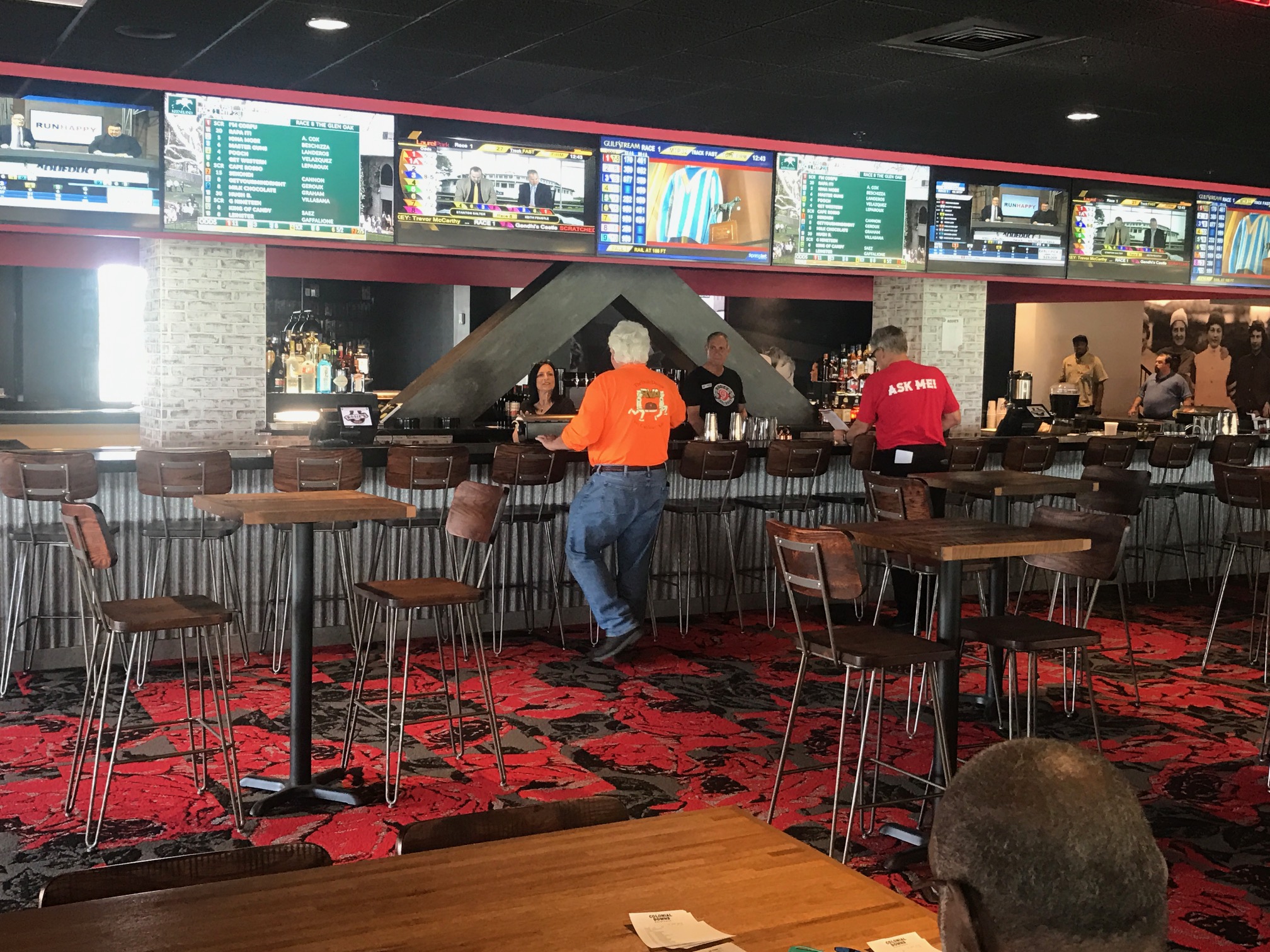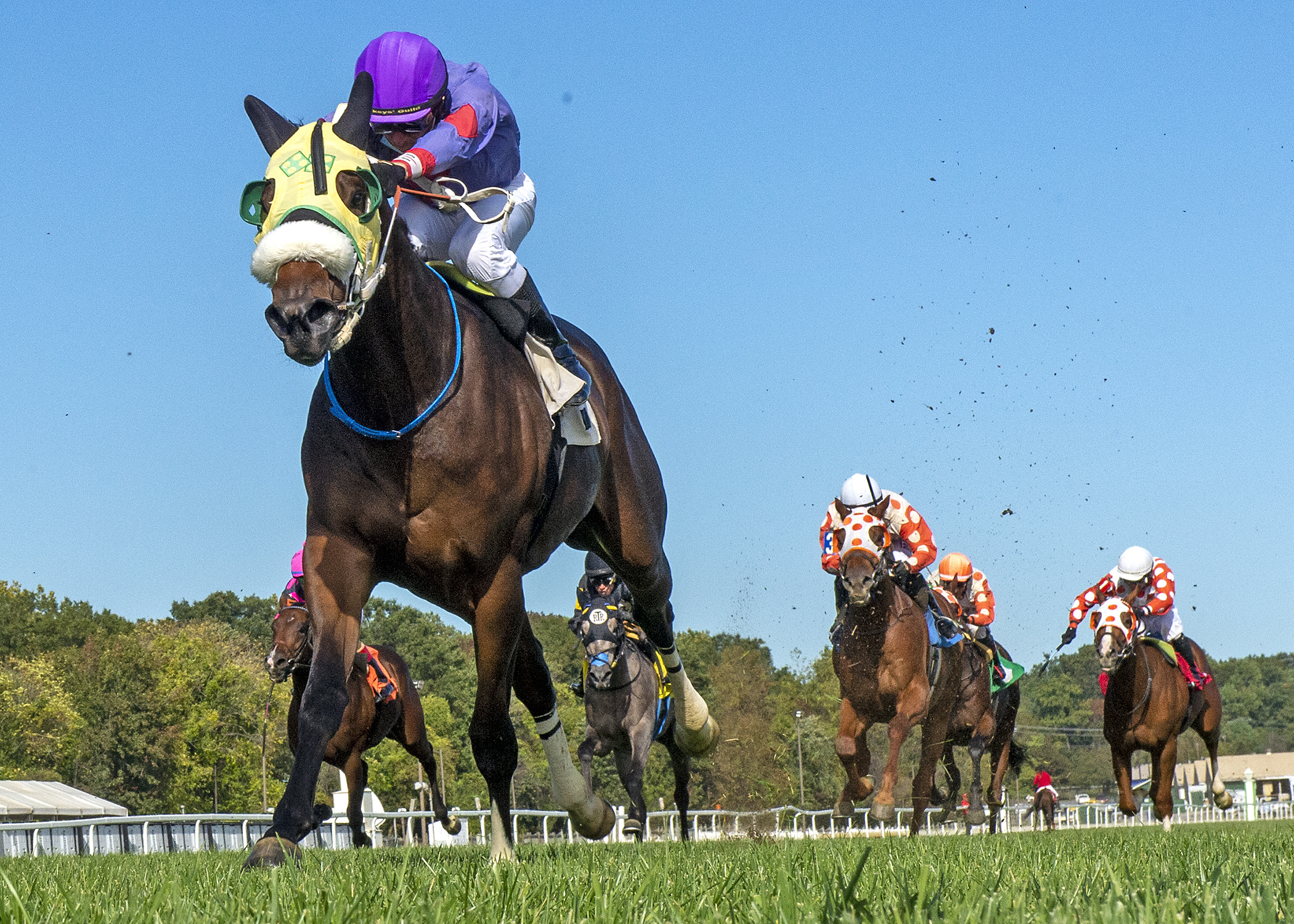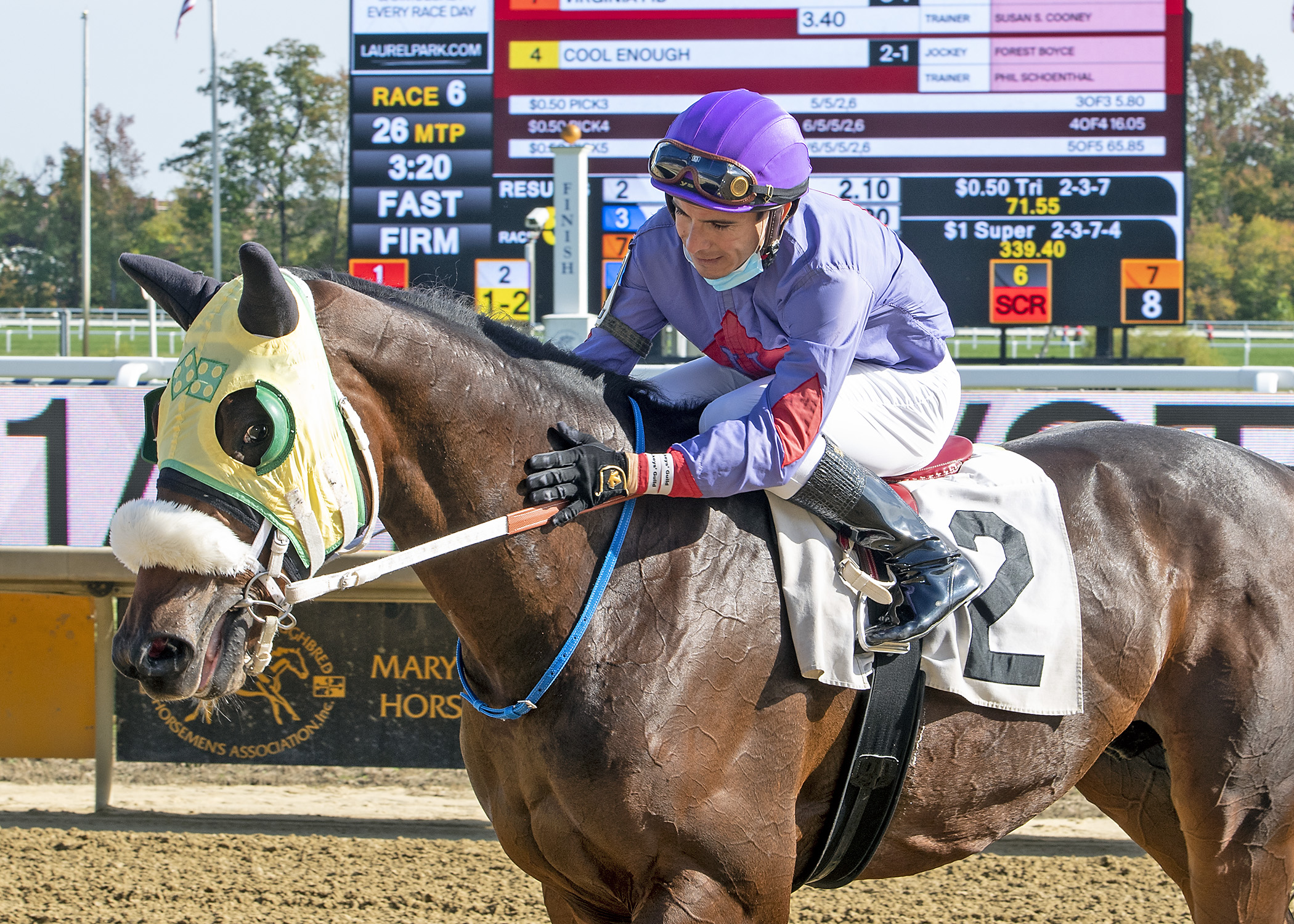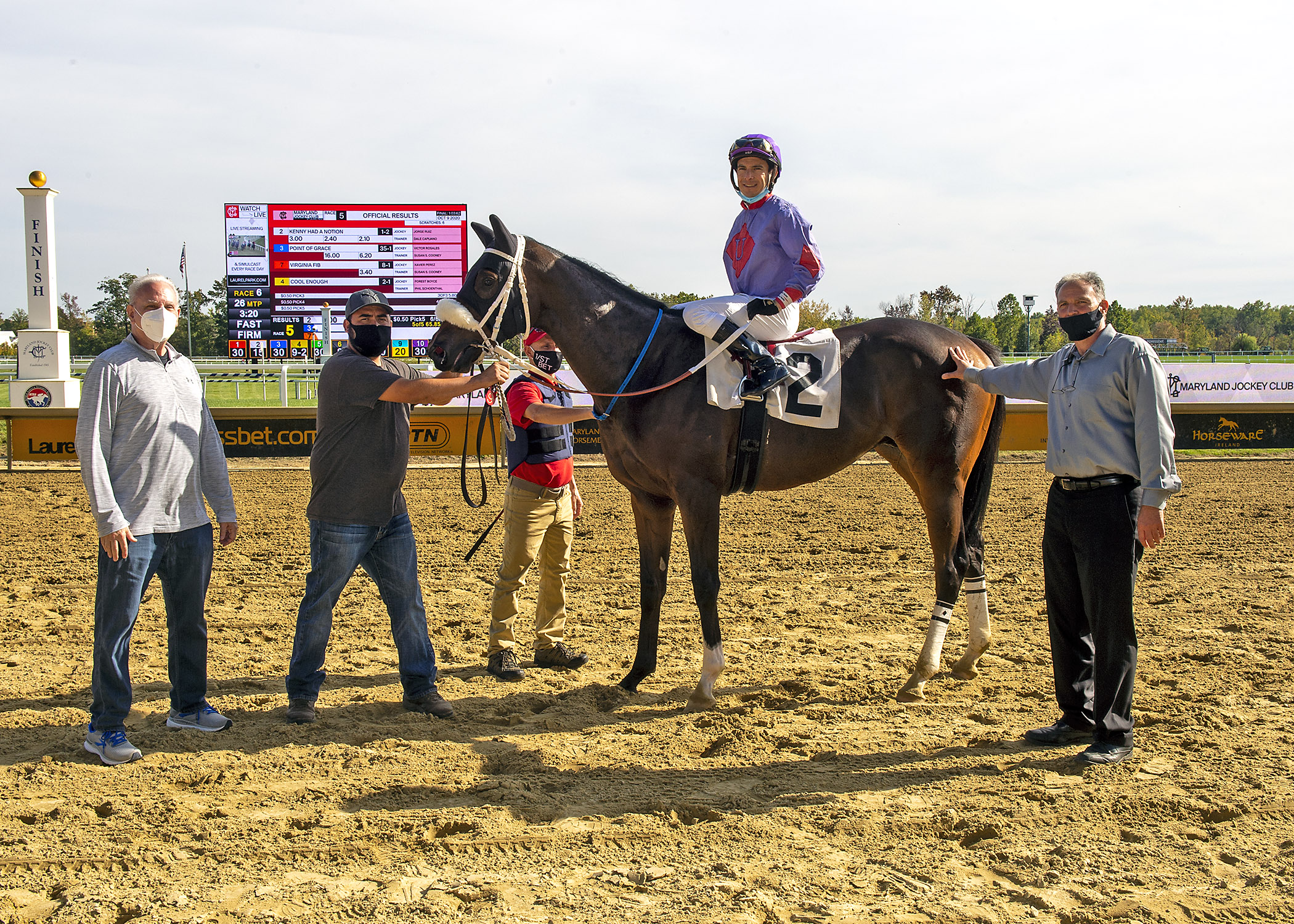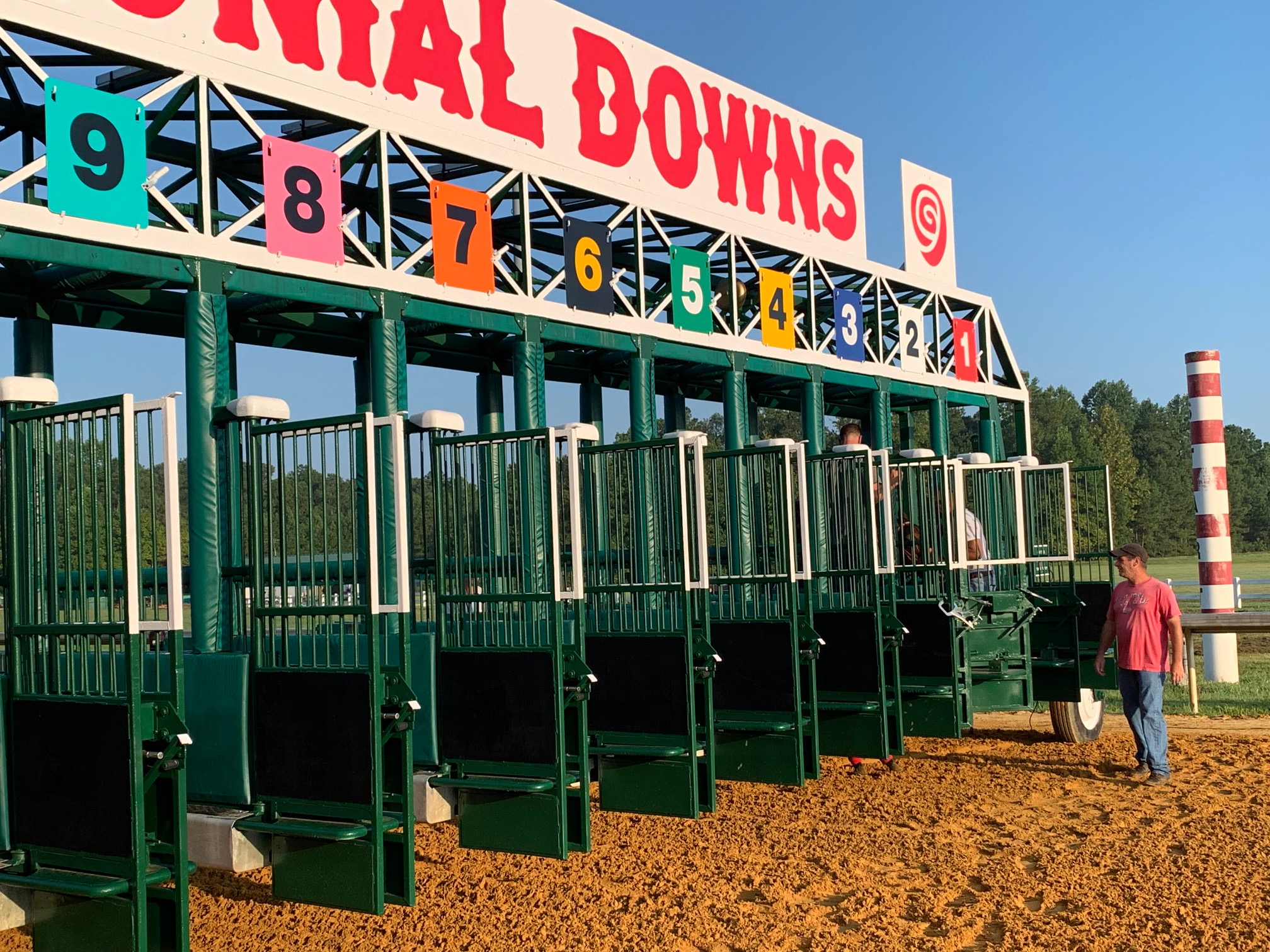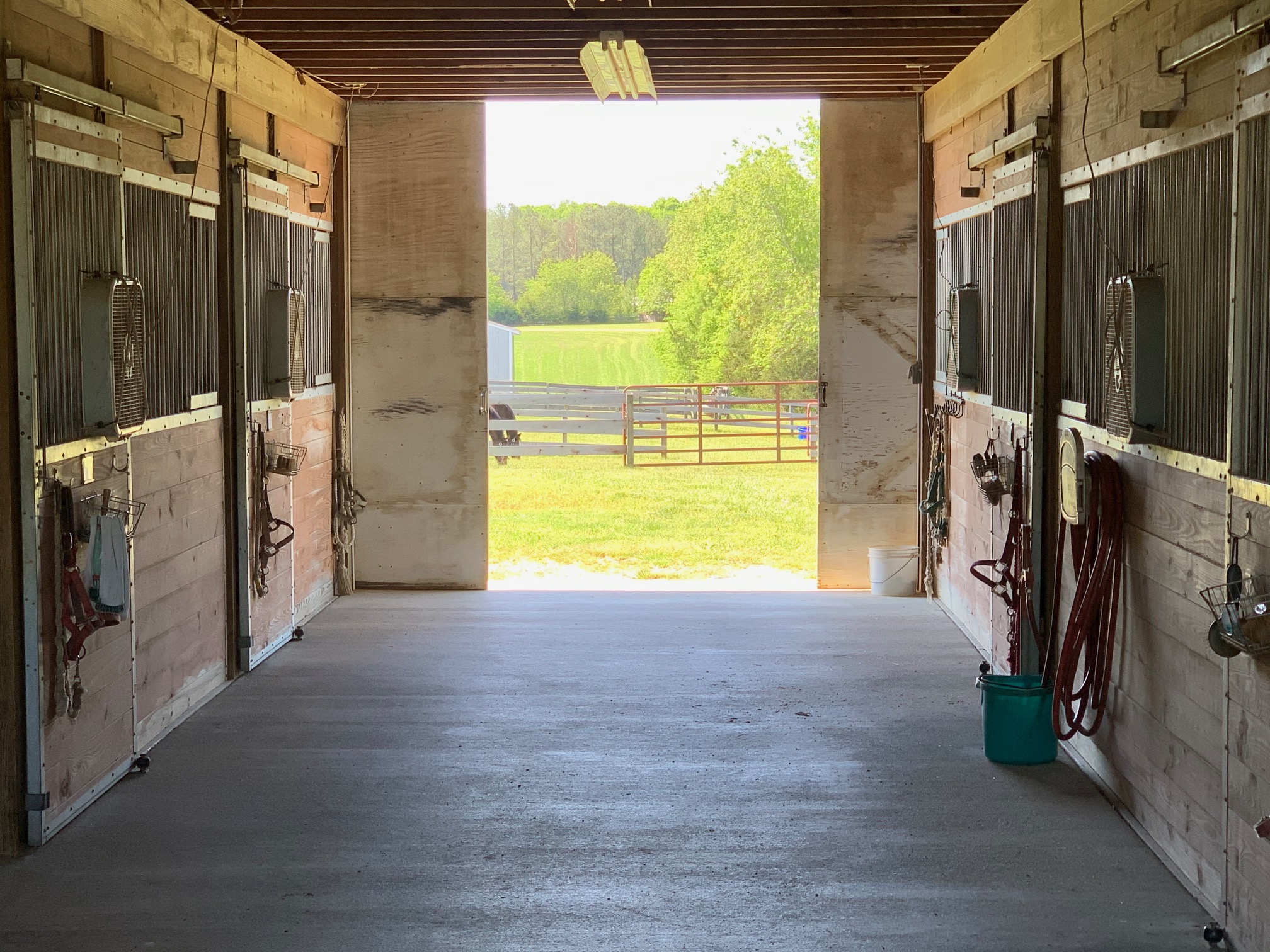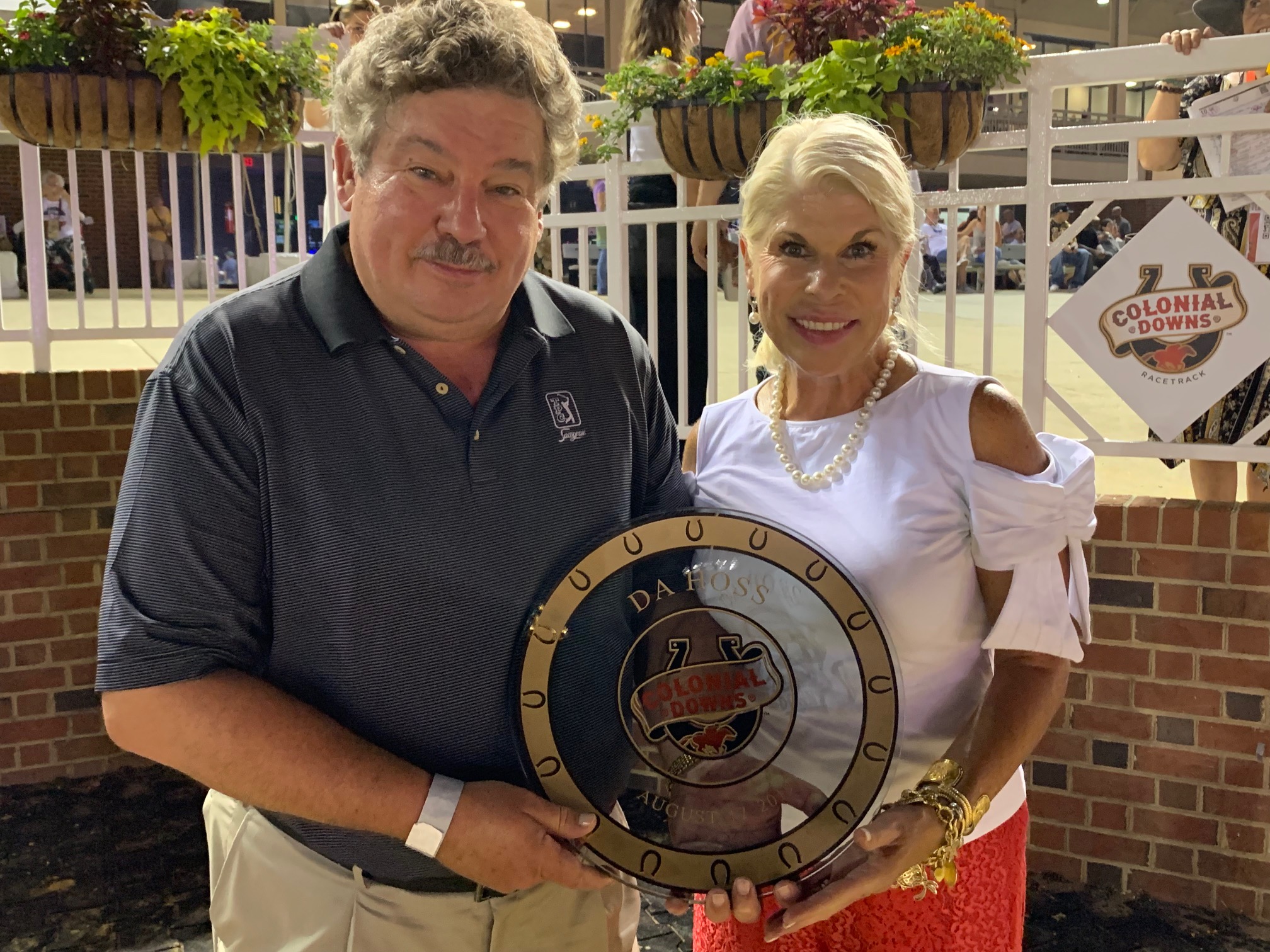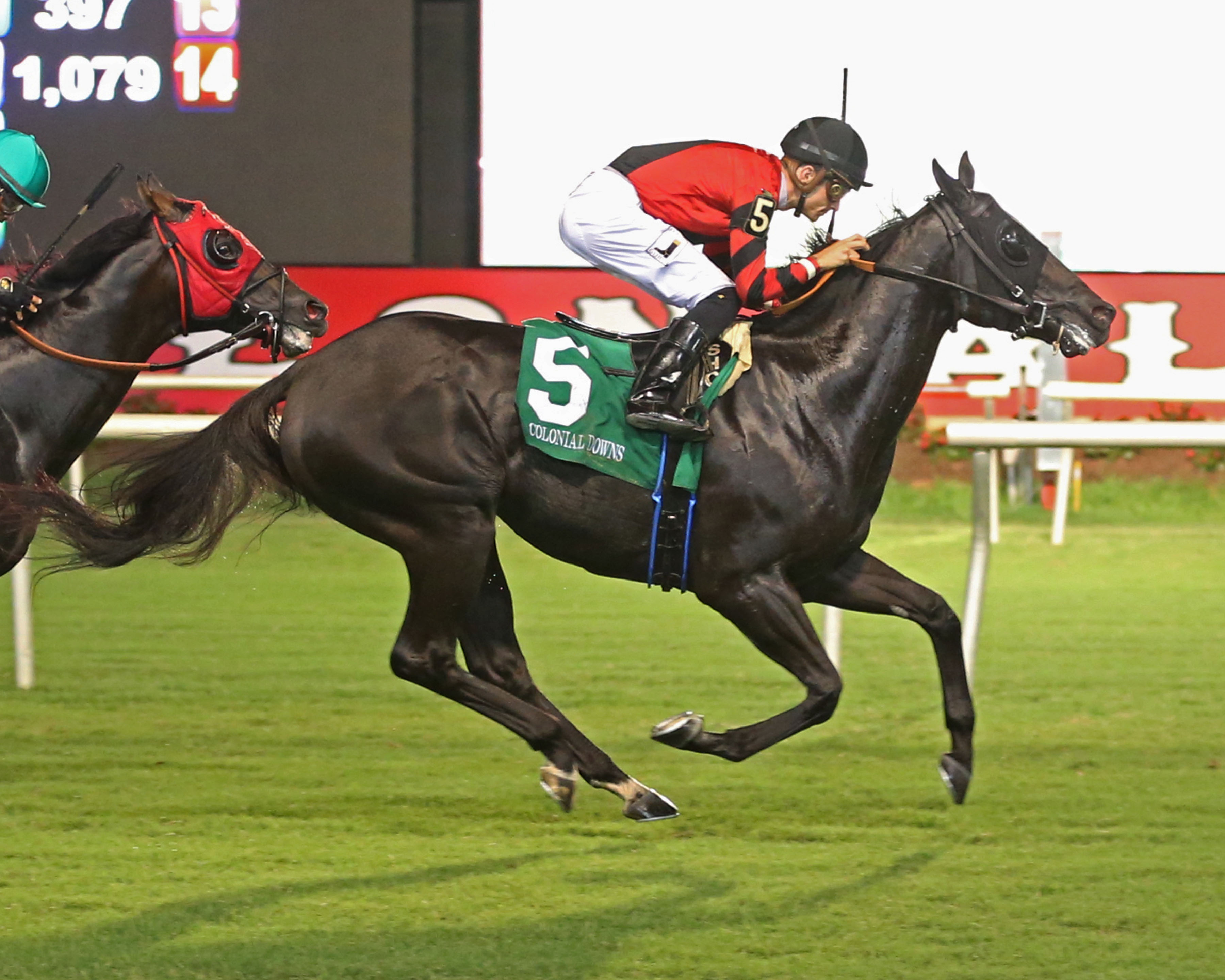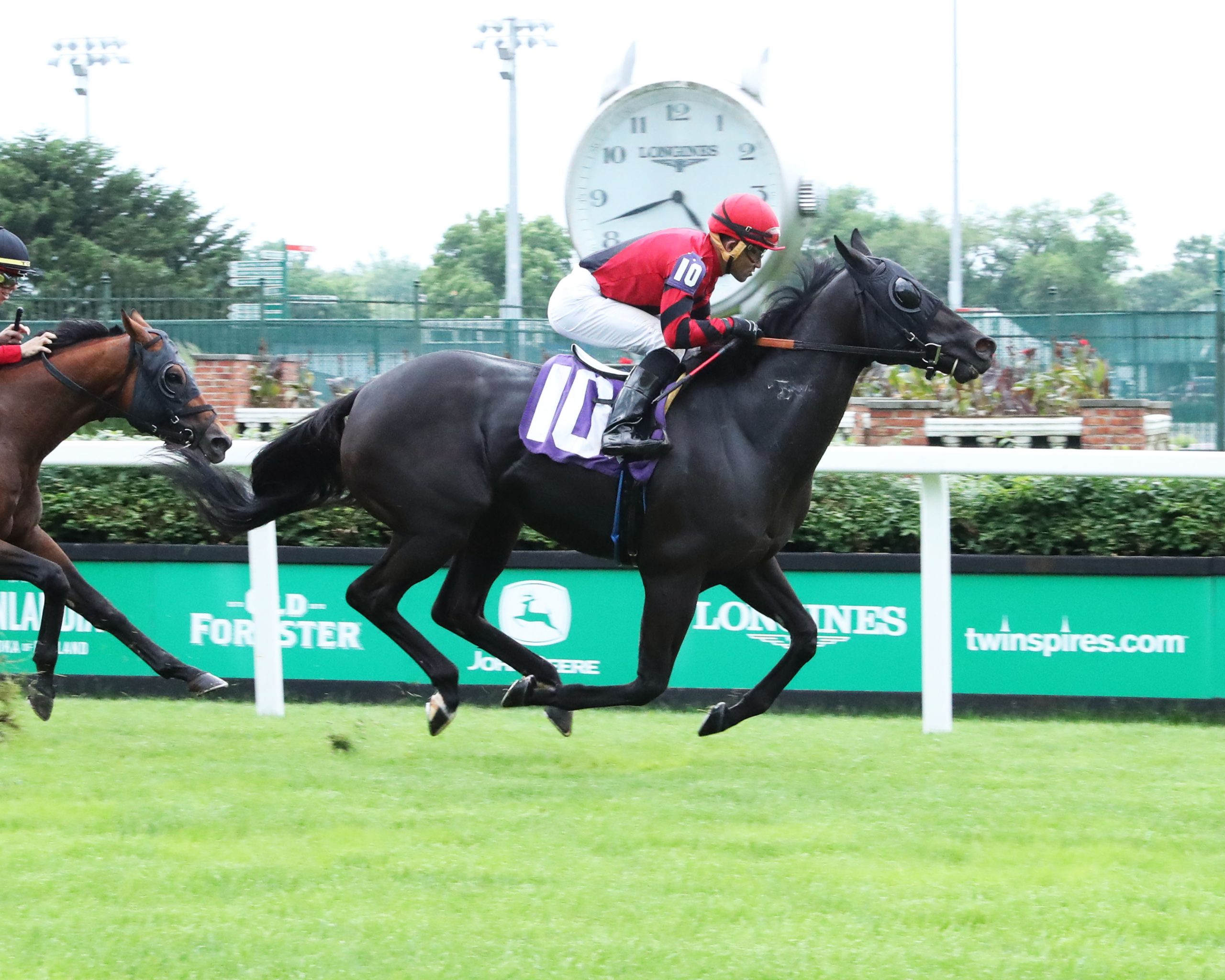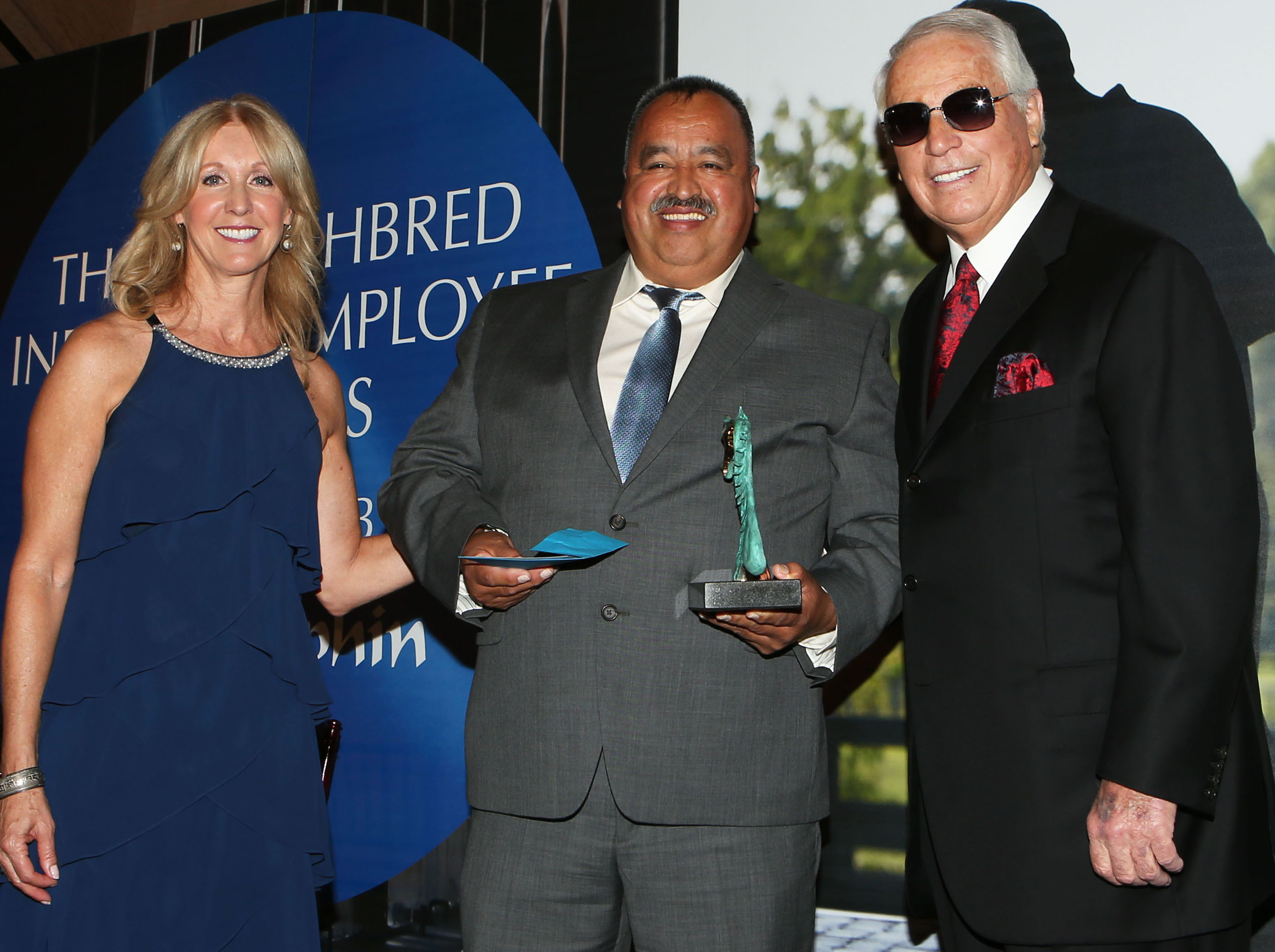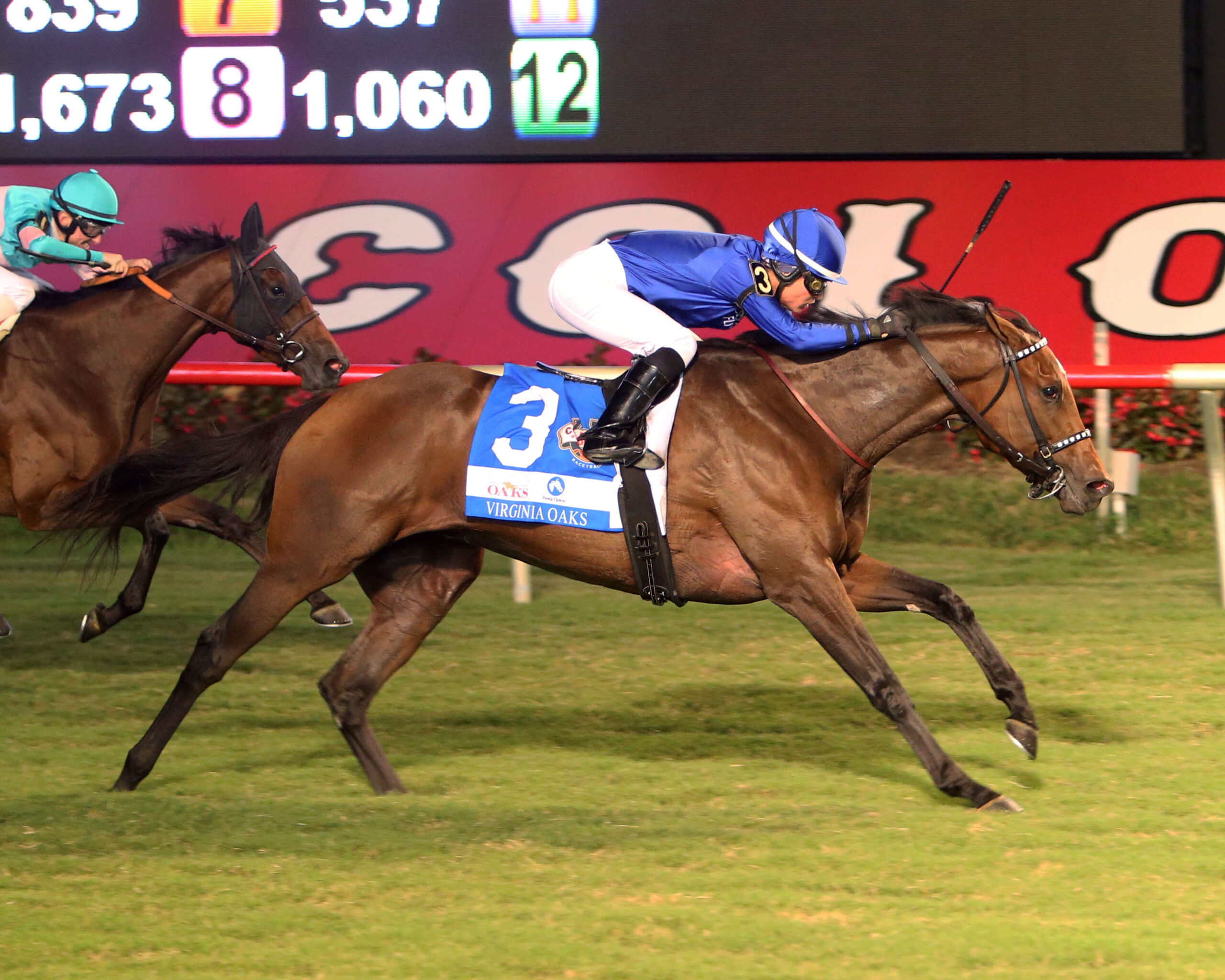The following appeared in The Paulick Report. VTA Executive Director Debbie Easter is a co-owner of 3-year-old Munnings filly, Finite, who captured a nice Grade 3 stakes win November 21 at Churchill Downs. With the win, Finite’s bankroll stands at $757,869 from 11 career starts. Easter is one-fourth owner of the filly.
Favored Finite closed into a swift pace, moved into contention around the turn and ran down Sanenus (CHI) near the top of the stretch to comfortably win Saturday’s 35th running of the Grade 3, $100,000 Chilukki Stakes at Churchill Downs in Louisville, Ky., by 2 1/2 lengths at odds of 6-5.
Finite, ridden by Ricardo Santana and trained by Steve Asmussen, clocked one mile over a fast track in 1:35.53 to beat eight other fillies and mares. It was the 3-year-old filly’s fifth stakes win of her career and first against elders.
Risky Mandate led the field in the one-turn mile through swift fractions of :22.75 and :45.59 with Finite tracking in seventh down the backstretch. As she moved into contention circling around the field, Sanenus (CHI), who was sitting just off the pace-setter, grabbed the lead and crossed the six-furlong marker in 1:10.81. But the closing Finite quickly forged an advantage in upper stretch and willingly drew off thereafter.
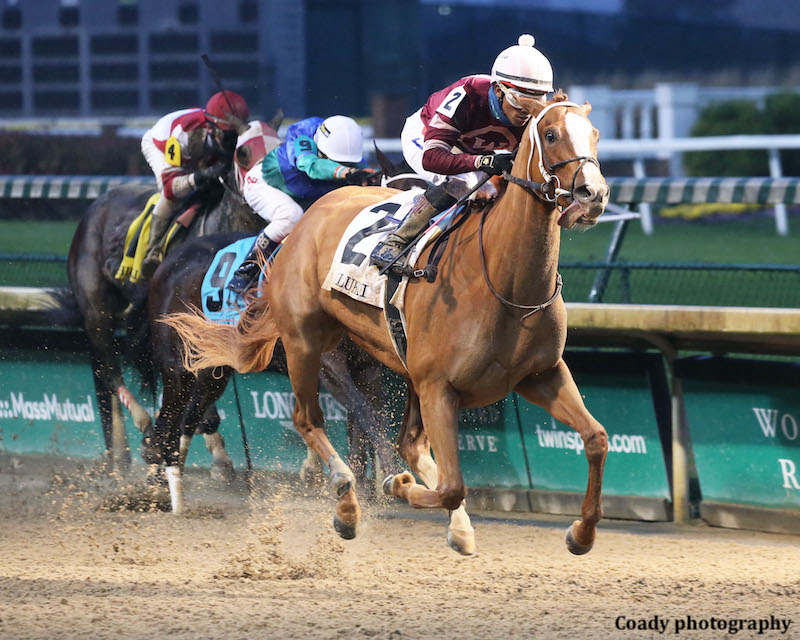
Finite, co-owned by VTA President Debbie Easter, wins the 35th Chilukki Stakes. Photo by Coady Photography.
“We had a great trip rating behind the pace,” Santana said. “I think at this stage of her career she is just getting better. She’s only 3-years-old and today was her first time against older horses. We went one-turn today but she’s maturing and going to be really nice at longer distances, too.”
Finite banked the $59,520 first prize for owners Winchell Thoroughbreds (Ron Winchell),Thomas J. Reiman, William Dickson and Deborah A. Easter. She rewarded her backers with $4.40, $3.40 and $2.40. Sanenus (CHI), ridden by Rafael Bejarano at odds of 10-1, paid $7 and $3.80. Whoa Nellie was another 1 ¼ lengths back in third at 6-1 under Joe Rocco Jr. and returned $4.20.
Gold Standard, Grand Cru Classe, Risky Mandate, New Roo, Crazy Sexy Munny and Unique Factor completed the order of finish.
Prior to the Chilukki, Finite was the narrow runner-up finisher behind Venetian Harbor in last month’s $200,000 Raven Run (G2) at Keeneland.
Overall, Finite has won six of 11 starts and $757,869. Her previous stakes scores came in the $122,097 Rags to Riches and $300,000 Golden Rod (G2) at Churchill Downs as a 2-year-old and the $148,500 Silverbulletday and $294,000 Rachel Alexandra (G2) earlier this year at Fair Grounds.
Following her fourth-place effort in the $400,000 Fair Grounds Oaks (G2) in March, Finite underwent minor ankle surgery but returned to Asmussen’s stable a few months later.
“She’s a really quality filly,” said Asmussen, who also won the 2007 Chilukki with Rolling Sea. “We had a really nice win last year at Churchill in the Golden Rod (G2) and going one-turn in the Rags to Riches. I think she had five wins in a row at one point last year. It was a disappointing race in the Fair Grounds Oaks (G2) and after that is when this year was sort of turned upside down. We gave her some time off after that race and she didn’t really handle the going in her start at Kentucky Downs. In the Raven Run, she ran really well against some nice fillies that day.”
In an attempt to land a Grade 1 win to her resume, Asmussen plans to send Finite to California’s Santa Anita for a start in the $300,000 La Brea (G1) for 3-year-old fillies over seven furlongs on Dec. 26.
Finite is a chestnut daughter of Munnings out of the Tapit mare Remit and was bred in Kentucky by Winchell Thoroughbreds LLC.
Known as the Churchill Downs Distaff from 1996-2004, the Chilukki was renamed in 2005 to honor Stonerside Stable’s graded stakes-winning filly who was trained by Bob Baffert. The daughter of Cherokee Run made four starts at Churchill Downs, all of which were victories. Chilukki won the 2000 edition of this race in what would be her final start with a final time of 1:33.57 – a track record at the time.
Racing at Churchill Downs resumes Sunday with a nine-race program that begins at 1 p.m. ET. The carryover in the Single 6 Jackpot, which covers Races 4-9, is up to $162,270.



